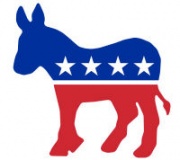Hillary Clinton confirmed yesterday that she will forego public financing of her primary and general election campaigns. She is the first candidate to do so. What does this mean?
If a candidate accepts public financing, the government gives them a certain amount of money for their campaign. The candidate then cannot raise more money from private donors then what the government has given them. By opting out of public financing a candidate can raise oodles of money to spend on brow beating their opponents with negative ads and yard signs. :-)
The last two elections have seen the death of public financing because of the outrageous costs associated with television ads in a national campaign. Most of the serious candidates will have to opt out of public financing if they hope to remain competitive in this wide open field.
Subscribe to:
Post Comments (Atom)

2 comments:
Howard Dean was the first one to forgoe the public financing in last round's democratic primary
Well, this is true to an extent...George Bush had already said he would not be taking the funds, so it made it an imperative for the Dems to also forego the money to keep track with him.
Personally I think the system should be revamped since public financing is obviously not enough to help candidates wage a national campaign. Part of that equation should be free air time.
Post a Comment